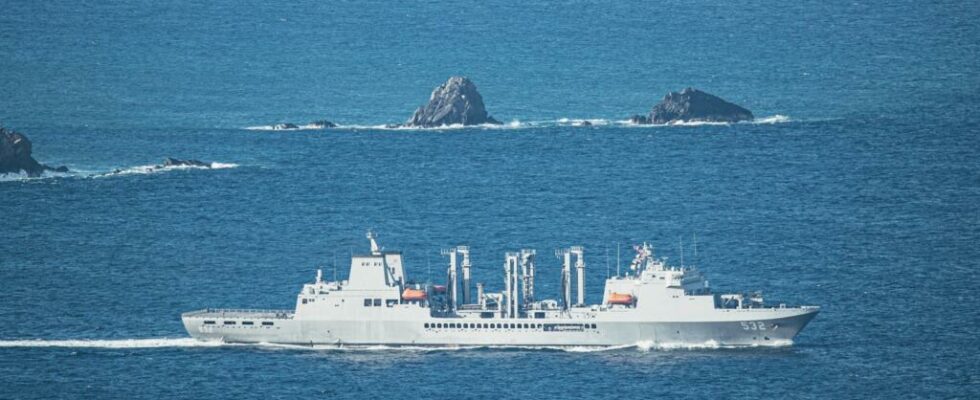While Xi Jinping pleads for “ complete reunification », US President Joe Biden grants aid of more than half a billion dollars to Taiwan. In recent years, American support has intensified and the Democratic camp is eager to continue this dynamic before the presidential election.
4 mins
An envelope for Taiwanese Defense, granted without further details by the American president. If Washington has been equipping the island for a long time, it had to pay for the equipment. Since the end of 2022, a law passed in Congress has allowed the return of military aid. $567 million in equipment has been granted for Taiwanese Defense, the White House announced on September 30.
“This is funding allocated directly by the president who mandates his secretary of state to provide this assistance. It is the equivalent of a decree, explains Marc Julienne, Asia director at IFRI (French Institute of International Relations). I’m speculating, but it could be fighter planes, or parts necessary for their maintenance. But also air defense systems like straits. We could see their importance in the Ukrainian theater.”
A list of races revealing Taiwan’s internal debates over the island’s defense needs to deter or confront a hypothetical invasion by the People’s Liberation Army (PLA, Chinese army). Should we invest in light, inexpensive equipment that can be mass produced while assuming the asymmetry of forces with Beijing, or also in heavy and costly more significant weapons programs? Diplomacy professor at National Chengchi University in Taipei, Huang Kwei-bo, believes the two are complementary.
“Taiwan urgently needs surface-to-air missiles, armored vehicles, etc. To be able to prevent the Chinese army from landing on the island. The US government is trying to reinforce Taiwan with lots of short-range weapons systems, but many believe Taiwan needs to diversify with aircraft and submarines, assures the former deputy secretary of the KMT (Nationalist Party, historically a supporter of dialogue with Beijing), both parties need to sit down to discuss the needs of the island.” His political party has no longer been in office since 2016, but there are many within it who defend the purchase of heavy equipment. Taiwanese Defense is awaiting the first delivery of M1A2T Abrams tanks and has launched a submarine program. But faced with the evolution of theaters of war“the United States is putting pressure on Taiwan to prioritize inexpensive programs, easy to mass produce, in order to saturate a possible attack”explains Marc Julienne.
Whatever its nature, this envelope was granted a few weeks before the opening of a possible period of uncertainty surrounding the relationship between Taipei and Washington. “ There is undoubtedly a form of urgency to put this important aid before a possible alternation in the White House, points out the Asia director at IFRI. Donald Trump’s comments this summer are enough to alarm Formosa. “They took 100% of our microchip industry from us. I think Taiwan should pay for its defense,” launched the Republican candidate to Bloomberg Businessweek July. An outing that contrasts with the rather positive image that the former president seems to enjoy among the 23 million inhabitants of Asia’s 8th economic power. “Taiwan is the place that shows the strongest support for Donald Trump in Asiatempers Professor Huang. Because as president, Donald Trump has shown strong support for the island. And in Taipei, the decision between a Kamala Harris and Donald Trump presidency is not as clear-cut as one might think, believes Marc Julienne. “The Trump administration has been perhaps the most supportive U.S. administration for Taiwan. This support was extended by Joe Biden, but they do not keep a bad image of Trump.”
But for Huang Kwei-bo, a victory for the Republican would still tip the island into uncertainty. “If he wins, everything will be unpredictable. Maybe the US will show more support to Taiwan, maybe it will reduce its support to improve the relationship with Beijing, no one knows…” A second option which would contrast sharply with the United States’ China policy in recent years. “There is a fairly broad consensus between Republicans and Democrats to consider that China is the number one adversary against which we must have a firm policy, recalls Marc Julienne. And so in general, that means supporting Taiwan in this opposition to People’s China. »
Also readChina sanctions US companies for arms sales to Taiwan
